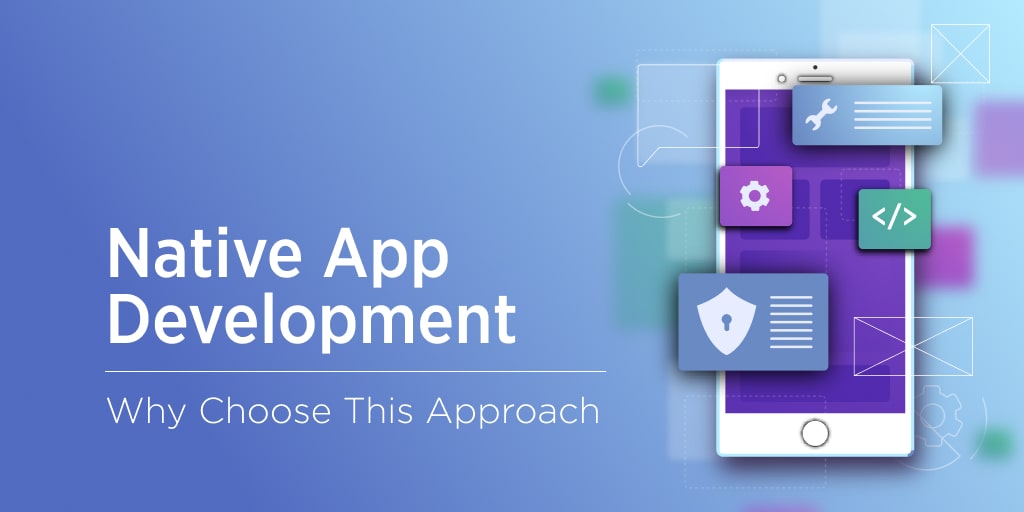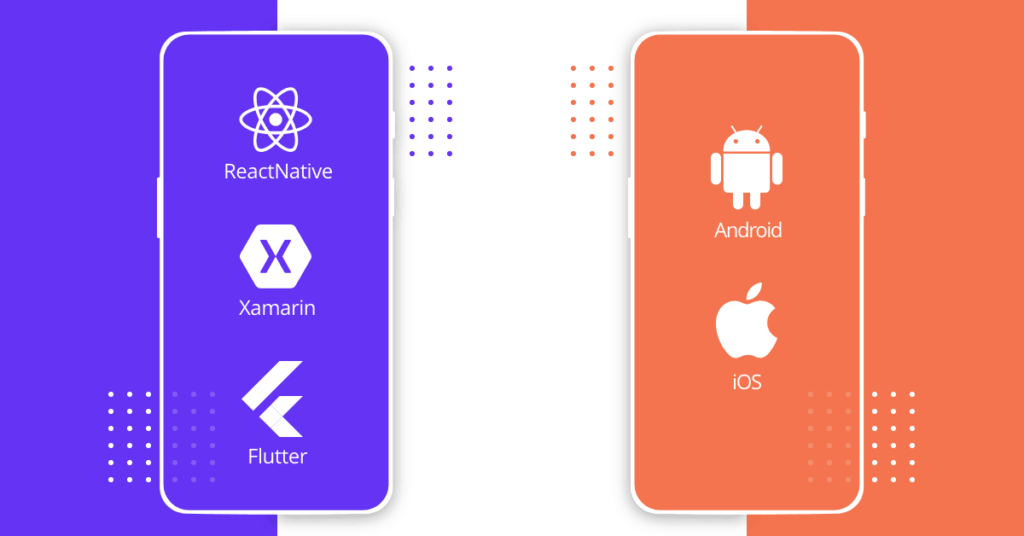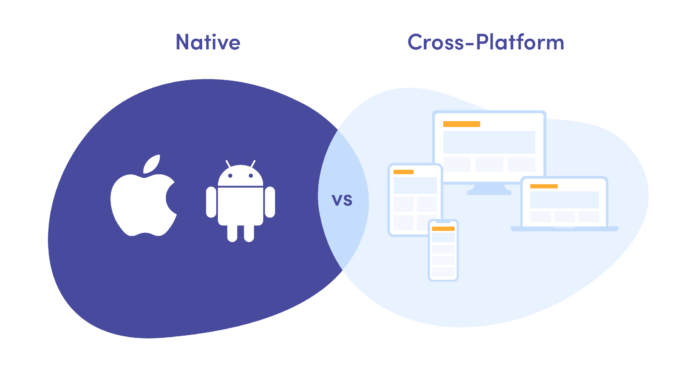In today’s rapidly evolving digital landscape, mobile apps are essential for businesses aiming to improve customer engagement, optimize operations, and increase revenues. However, a crucial decision in mobile app development is choosing between native and cross-platform approaches. Each method offers unique strengths, limitations, and applications, making it vital for businesses to thoroughly assess their specific needs before deciding. This article examines the primary differences, benefits, and considerations of native and cross-platform development to guide you in making an informed decision.
Understanding Native App Development
Native app development involves creating mobile applications specifically designed for one platform, such as iOS or Android. These applications are developed using programming languages native to the respective platforms—Swift or Objective-C for iOS, and Kotlin or Java for Android. This approach allows developers to utilize the platform’s native tools and libraries, resulting in enhanced performance and seamless integration with the device’s features and functionalities.
Advantages of Native Development
- Performance:
Native apps deliver high performance because they are optimized for a specific platform. They directly interact with the device’s hardware and software, ensuring faster load times, smoother animations, and efficient memory usage. - User Experience (UX):
Native apps follow the platform’s design guidelines, resulting in a consistent and intuitive user experience. This alignment with native UI components improves user satisfaction and engagement. - Access to Platform Features:
Developers can fully utilize platform-specific features such as GPS, camera, notifications, and gestures. Native development also ensures compatibility with new hardware and OS updates. - Reliability and Stability:
Since native apps are built using official SDKs and tools, they are more stable and less prone to crashes or bugs.
Disadvantages of Native Development
- Higher Costs:
Developing separate apps for iOS and Android requires more resources, increasing development and maintenance costs. - Time-Consuming:
Building two distinct apps takes longer, which may delay the launch timeline. - Resource Dependency:
Skilled developers proficient in platform-specific languages are required, which can limit flexibility.

Understanding Cross-Platform App Development
Cross-platform development involves designing and building a single application that operates seamlessly across multiple operating systems, including iOS, Android, and sometimes web-based platforms. This approach utilizes specialized frameworks like React Native, Flutter, and Xamarin, enabling developers to write their code once and deploy it efficiently on various platforms. These tools streamline development processes and ensure consistent performance across different devices and operating systems.
Advantages of Cross-Platform Development
- Cost-Effectiveness
A single codebase reduces development time and costs, making it an ideal choice for startups or businesses with limited budgets. According to Business News Daily, cross-platform development is a cost-effective solution for small businesses looking to minimize app development expenses. - Faster Time-to-Market
Since developers can reuse code across platforms, cross-platform apps can be launched more quickly. This Forbes article explains how fast time-to-market is essential in today’s competitive mobile app landscape. - Wider Reach
Cross-platform apps enable businesses to target both iOS and Android users simultaneously, maximizing audience engagement. You can learn more about expanding your reach with cross-platform apps on TechCrunch. - Simplified Maintenance
Updating and maintaining a single codebase is easier and less expensive compared to managing separate native apps. Medium has insightful articles about simplifying app maintenance through cross-platform development.
Disadvantages of Cross-Platform Development
- Performance Limitations:
Cross-platform apps may not perform as efficiently as native apps, especially for resource-intensive tasks like gaming or augmented reality. - Limited Access to Platform Features:
While frameworks like Flutter and React Native offer access to many native features, they may lag behind native development in adopting new platform capabilities. - Inconsistent User Experience:
Achieving a truly native look and feel on both platforms can be challenging, potentially compromising user satisfaction. - Dependency on Frameworks:
Businesses rely on third-party frameworks, which may face limitations or become obsolete over time.

Factors to Consider When Choosing the Right Approach
1. Project Requirements
Assess the complexity and purpose of your application. If your app requires advanced features such as augmented reality, virtual reality, or gaming, native development is typically more beneficial. Native development offers the strong performance and specific functionalities needed for these demanding applications. On the other hand, for simpler apps or when creating a Minimum Viable Product, cross-platform solutions can be more efficient. These options typically reduce both time and financial resources, making them ideal for projects with simpler needs.
2. Budget
Native development is generally more expensive due to the need for separate teams for iOS and Android. If you have budget constraints, cross-platform development offers a more economical alternative.
3. Timeline
If you need to launch your app quickly, cross-platform development is advantageous. Native development might extend the timeline due to the need to build and test separate apps.
4. Target Audience
If your target audience heavily favors one platform over another (e.g., iOS in North America or Android in Asia), investing in a native app for that platform might make more sense.
5. Long-Term Goals
Consider your app’s scalability and future updates. Native apps are more adaptable to platform changes, while cross-platform solutions may require frequent adjustments.
6. Development Team Expertise
Leverage the strengths of your development team. If your team has expertise in a specific framework like Flutter, cross-platform development could be a viable option.
Popular Frameworks and Tools
For Native Development:
- Xcode (iOS): Official development environment for iOS apps.
- Android Studio (Android): Official IDE for Android apps.
For Cross-Platform Development:
- React Native: Backed by Meta, ideal for building UI-centric apps.
- Flutter: Google’s open-source framework known for its rich UI components.
- Xamarin: Microsoft’s framework for building cross-platform apps with .NET.
Case Studies: When to Use Which Approach
1. Native Success Story: Instagram’s Camera Feature
Instagram’s camera feature was developed natively to ensure high performance and seamless integration with device hardware. The app’s ability to deliver real-time filters and effects is a testament to the capabilities of native development.
2. Cross-Platform Success Story: Alibaba’s App
Alibaba utilized Flutter to create a unified codebase for both its iOS and Android applications. This strategic approach significantly reduced the time and expenses associated with development, while ensuring a cohesive and seamless user experience across different platforms. By adopting this method, Alibaba was able to streamline its processes and deliver high-quality applications efficiently and effectively.
Conclusion: Making the Right Choice
Choosing between native and cross-platform development depends on your specific business needs, target audience, and resources. Native development excels in delivering superior performance, reliability, and access to platform-specific features, making it ideal for high-performance and feature-rich applications. In contrast, cross-platform development offers cost savings, faster time-to-market, and a broader reach, making it a practical choice for startups and businesses with limited budgets.
By thoroughly assessing your project’s requirements, budget, timeline, and long-term objectives, you can make an informed decision that aligns with your goals. Whether you choose native or cross-platform development, collaborating with an experienced development team ensures the success of your mobile app and propels your business forward in the digital age.
If you want to learn more about choosing the right app approach, check out our detailed guide on Native vs Cross-Platform Development or Contact us.


